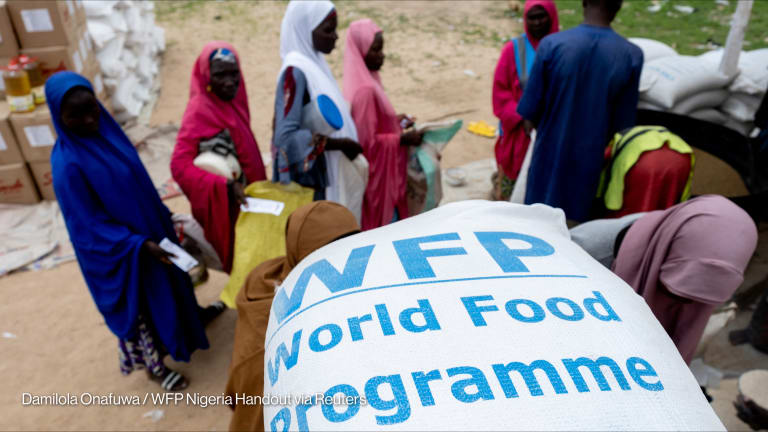
Within the U.S. aid community (and most national media outlets), the benefits of reforming the nation’s system for delivering food aid — particularly the policy of “monetization” — are often presented as a foregone conclusion.
In an editorial, The Washington Post has described food aid reform as “among the more laudable ideas in [U.S.] President [Barack] Obama’s budget for fiscal year 2014,” while The New York Times noted that the current system “has been a boon for domestic farmers and shippers, but more than 30 studies in the last decade have concluded that the system is inefficient, costly and even harmful to the very communities [that] Washington purports to help.”
Two months ago, Slate similarly asked if U.S. lawmakers will finally reform these “ridiculous” food aid laws after the massive assistance effort launched to respond to Typhoon Haiyan in the Philippines.
Last week, when news emerged that $35 million for U.S. food aid reform might be on the table amid the ongoing budget negotiations, I wrote: “After years of lobbying by foreign aid advocates, NGO representatives, food security experts and U.S. government officials, lawmakers might be ready to open the door — at least part of the way — for food aid reform in 2014.”
While it is true that members of each of the groups listed above have been lobbying for change for years, some organizations and individuals have opposed many comprehensive reform ideas the Obama administration and lawmakers from both parties have proposed over the years.
And not all aid groups support doing away with food aid monetization — the practice of shipping U.S. surplus commodities abroad so that NGOs can sell them in developing countries and use the proceeds for humanitarian operations.
Reform advocates cite recent reports by the Government Accountability Office, alleging that food aid monetization is inefficient and can cause harm to local markets, but the Alliance for Global Food Security — a consortium of 13 international NGOs including World Vision and ACDI/VOCA, the agricultural development organization whose members include several U.S. farmers cooperatives — commissioned in 2012 its own report, which calls the GAO’s central findings exaggerated and incomplete.
GAO’s emphasis on cost recovery — the amount of money NGOs generate by selling the commodities compared to the cost of producing and shipping the commodities overseas — downplays the additional benefits associated with sending U.S. agriculture commodities abroad, the alliance argues. Those benefits pertain to “food quality and nutrition,” “food availability,” “market development,” and “business opportunities.”
According to the alliance’s report, GAO’s concerns over market distortions caused by selling huge amounts of foreign agriculture commodities in developing markets “can be prevented relatively easily by … choosing a commodity that is in demand but is not produced in adequate amounts in the recipient country.”
The debate among U.S. development groups over food aid reform is typically presented as between those who either have a vested interest in agriculture or believe comprehensive reform will erode the constituency behind food aid funding, and those who think their programs could reach more people if they didn’t have to deal with monetization.
But the report argues that shipping U.S. food commodities abroad has real benefits that would go unrealized if monetization were dismantled.
The changes that are currently being discussed are extremely modest within the grand scheme of U.S. food assistance budgets. However, if food aid reform gains momentum and more comprehensive options come up, are there legitimate programmatic reasons — other than concerns over the loss of a political constituency — to maintain monetization as an option? If yes, under what conditions?
Please share your thoughts by leaving a comment below.
Read more on U.S. aid reform online, and subscribe to The Development Newswire to receive top international development headlines from the world’s leading donors, news sources and opinion leaders — emailed to you FREE every business day.








